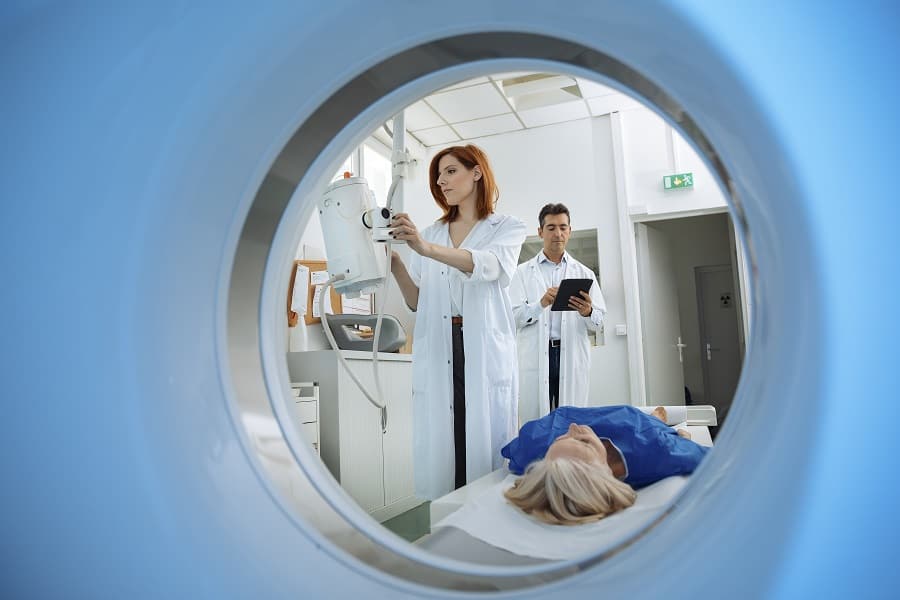The reason you get a test like an X-ray or CT scan is to improve your health. But are the tests actually doing more harm than good by exposing you to radiation?

Your doctor only orders imaging when the benefits of a test outweigh the slight risk posed by exposure to radiation.
The short answer is no.
Susan Edwards, manager of Regional One Health’s East Campus Imaging Center, said the level of radiation in the tests is low and safe. “You’re not getting any more radiation than you do if you spend the day out in the sunshine,” she said.
That said, there are several things to keep in mind if your doctor orders imaging.
Here’s what you need to know:
The following tests at the Imaging Center involve radiation (MRI and ultrasound do not):
- CT scan
- Mammogram
- X-ray
- DEXA bone density scan
Of those tests, CT scans have the highest level of radiation.
Still, Edwards said the amount of exposure in any of the tests is so low experts cannot reliably measure any associated risk of cancer. The exposure is also very brief.
That said, tests with radiation should be used only when necessary. The more scans you have, the more radiation you are exposed to.
That’s why there are recommendations surrounding screening tests.
For example, screening mammograms are only done on women starting at age 40. For most women under 40, the risk of breast cancer is so low that it’s not worth exposing their body to the radiation.
It’s also why diagnostic tests require a doctor’s order.
Your doctor can decide if the value of the test outweighs the risk posed by exposure to radiation. If your doctor calls for imaging, ask why you need the test and how it will improve your treatment or diagnosis. Also ask about any specific risks.
There are ways to minimize your risk during a scan as well.
Ask your doctor to make sure the scan uses the lowest dose of radiation possible. Request that other parts of your body be shielded with a lead apron during the test. You can also inquire about alternative tests that don’t use radiation.
Finally, keep a record of the scans you have done. It may save you from unnecessarily repeating a test. It will also help you talk to your doctor about how much radiation you are getting.
The East Campus Imaging Center offers prompt appointments and results for patients with a doctor’s order. Walk-in screening mammograms for women age 40 and older are also available.

